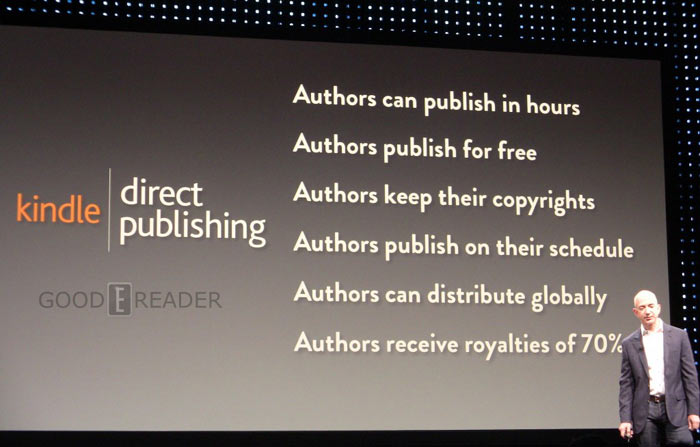Amazon is making an interesting change to the way it will reward authors whose books are leant out via the Kindle library program. From 1st July authors of self published ebooks available through Amazon's Kindle Unlimited and Kindle Owners' Lending Library programs will get paid per page read - not for how many times a book is checked out.

The change is said to be partly a result of writer feedback and a way of rewarding the most compelling writers more generously. It will also seem a fairer system for those authors who have written larger lengthier tomes. Epic novel writers should get more than pamphlet writers - as long as they have crafted a page-turner. It is worth noting that encouraging repeat reads doesn't pay - you only get the pay per page the first time a book is read though.
Amazon currently offers a fixed funding amount which is shared between authors every month, this funding will remain, it's just the way it is divided that will change. The company gave several examples showing how the new author payments scheme will work:
If the fund was $10M and 100,000,000 total pages were read in the month:
- The author of a 100 page book that was borrowed and read completely 100 times would earn $1,000 ($10 million multiplied by 10,000 pages for this author divided by 100,000,000 total pages).
- The author of a 200 page book that was borrowed and read completely 100 times would earn $2,000 ($10 million multiplied by 20,000 pages for this author divided by 100,000,000 total pages).
- The author of a 200 page book that was borrowed 100 times but only read halfway through on average would earn $1,000 ($10 million multiplied by 10,000 pages for this author divided by 100,000,000 total pages).
Being a rather canny operator, Amazon has thought about loopholes in the system and plugged the ones it has spotted in advance. For example pages are "based upon standard settings" of font size, line height and line spacing. Thus 'padding out' your ebook in those mechanical ways won't help boost your page(earnings) count. However images, charts and similar will add to your page-read count.

It will be interesting to see if authors try and 'game' the system in any way to make more page-turning earnings. Amazon authors will be able to see via their dashboard stats how far people get in reading their works, which may cause some edits. Just like how all the 'SEO experts' over the years have tried to play the Google game, we could get a new form of book writing which somehow gets readers to lend out and turn more pages with some 'special sauce' algorithm applied to the writing. That might result in some new-form literary classics, or it might not.













